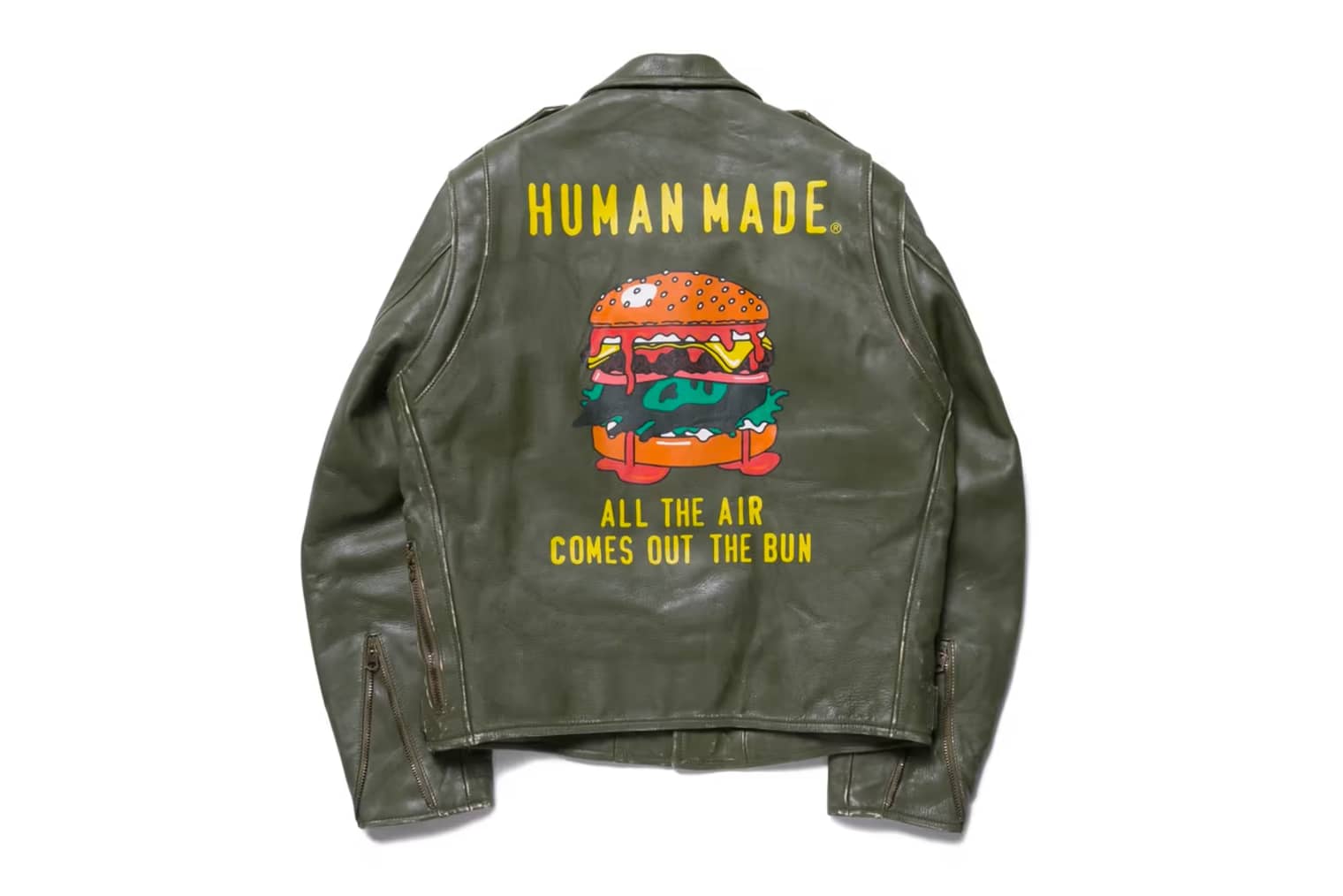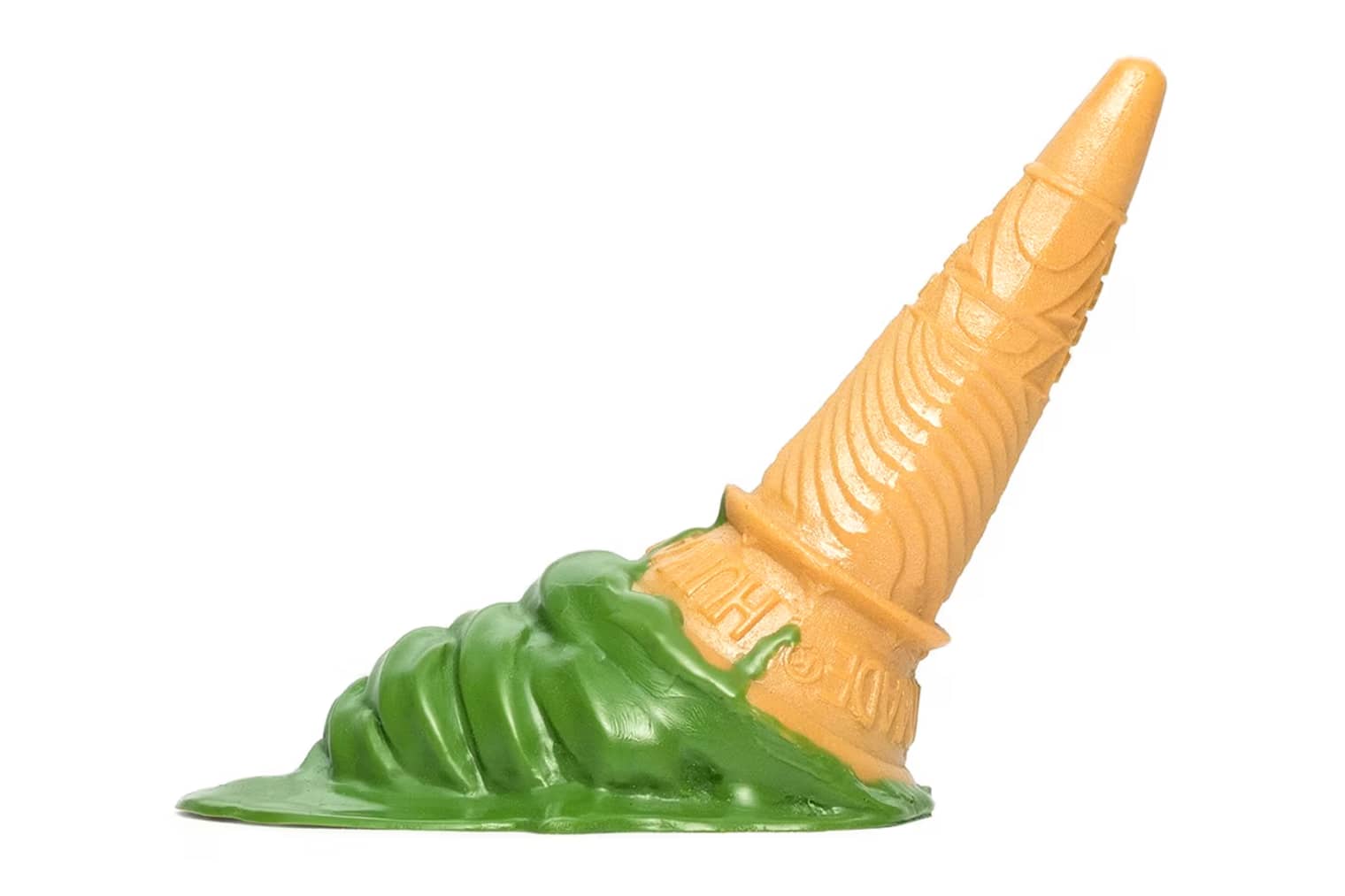Culture
FASCINATED WITH FOOD: HUMAN MADE
12 July 2023Ahead of the launch of the END. x Human Made 'Sushi' collaboration, we cast an eye over the Japanese brand's culinary curiosity.
At this stage in streetwear’s life, you’d have to have been living under a proverbial rock to not be familiar with Nigo and the importance he holds within the space. Instrumental in a plethora of brands that have become household names throughout his thirty-year career, the Japanese designer has founded A Bathing Ape, Billionaire Boys Club, Ice Cream and Human Made, as well as currently serving as KENZO's artistic director, cultivating a distinctive design language that played a pivotal role in the rise and dominance of street culture across the globe.
Born Tomoaki Nagao, Nigo's journey began as a cultural autodidact, whose subject matter was hip-hop. Immersing himself into the world of American music, the young DJ's trips to Tokyo informed his musical passion further and kickstarted his interest in fashion, as he began to emulate the dress sense of the hip-hop stars he saw on album covers. Having left his hometown of Gunma to study at Tokyo's prestigious Bunka Fashion College, the designer became immersed in Tokyo's fashion culture, meeting Jun Takahashi - who would go on to found UNDERCOVER - and Hiroshi Fujiwara, who has acquired the title "The Godfather of Streetwear" for his influence on the culture. Taking on the name Nigo, which stood for "number 2", as a result of his resemblance to Fujiwara, the pair founded fashion boutique Nowhere in 1993, before Nigo established his own brand, A Bathing Ape alongside friend and graphic designer SK8THING. Renowned for their titular ape graphics and their distinctive take on streetwear style, BAPE dominated the '90s with its limited edition and infamously difficult to acquire products. A symbol of hip-hop and streetwear culture's underground attitude of the time, Nigo carefully cultivated a fervent following as he continued to further develop his own collection of pieces - a monument to the culture and an archive of his interests.
Infamous amongst streetwear fans, Nigo’s penchant for collecting has seen the Ura-Hara originator amass a monolithic collection, filling a hangar in Tokyo with a wondrous array of garments, collectibles, jewellery, products and vintage American clothing. A collection that needs to be seen to be believed, Nigo’s dedication to collecting and curating pieces of historical note elucidates the designer’s distinct interest in preserving elements of culture, whether that be Lee Car Boy denim jacket, Pee Wee Herman’s suit or an archive of his own Human Made product. Utilising this backbone of organic, natural interest, Nigo’s own creations look to utilise elements of the past, transformed with his own unique and multi-cultured perspective. Filtered through his connections to hip-hop – Nigo was one of the founding members of Japanese hip-hop group Teriyaki Boyz – and an intense passion for a myriad of product, Human Made’s outlook recontextualises traditions of Americana, streetwear and culture.
Established in 2010, Human Made was Nigo’s opportunity to tap further into his love of vintage clothing and American culture – a departure from his work with A Bathing Ape and Billionaire Boys Club. Centred around the mantra “Gears for Futuristic Teenagers”, Human Made’s output encapsulates the concept at its core, that “the future is in the past”. Drawing inspiration from a diverse range of vintage clothing, the brand’s offering presents an array of lifestyle products and apparel that blends Nigo’s passion for vintage with his ever-shifting focus on what contemporary street culture can be, culminating in collections that form a precis of the atmosphere of our current historical moment. Emblazoned with graphic branding, Human Made’s visual identity conforms with this passion for the past, and how it can be effectively revamped for the modern day. Typified with old school typographies that call to mind American diners, 1950s product branding and retro graphics, Nigo’s penchant for the visual codes of food and drink often rise to the top of Human Made’s collective output, and it is clear to see that Nigo’s fascination with American culture spreads into the world of food.
Through Human Made’s 13 years of operation, the brand has heavily featured graphics, prints and products that look to the culinary arts for inspiration. Often reflecting Nigo’s passion for his home away from home, America, the designer’s home country of Japan also plays an important role in the shaping of his aesthetic, food-focussed vision. From the offset, Human Made’s typographic language mimicked that of traditional American highway diners, with cursive fonts that tell a compelling story of Nigo’s penchant for Americana. While not a direct copy, their “Rope Heart” logo bears a resounding resemblance to the font used across the promotional materials for George Lucas’ 1974 coming-of-age tale American Graffiti, starring a youthful cast of Ron Howard, Richard Dreyfuss, Harrison Ford and Cindy Williams. A snapshot of mid to late century American culture, filled with vintage cars, checkerboard flooring, red leather and chrome, the film saw Hollywood at its peak post-code, as New Hollywood Cinema saw directors and writers able to explore themes that were previously banned. It comes as no surprise that several the film’s key scenes take place at a classic All-American diner, “Mel’s Drive In”; a neon-lit hang-out serving up lavish milkshakes, hamburgers and of course, ice cold glasses of Coca Cola – synecdochical emblems of American culture. While hamburgers have appeared across a number of Human Made’s garments, immortalising the latter developed into a fully-fledged collaboration with the legendary drinks brand. An instantly recognisable product of the USA, Human Made celebrated 100 years of the iconic Coca Cola bottle in 2015 with a capsule collection featuring the brand’s iconic logos and crisp red and white colours. Riffing on classic advertisements, the collection offered a modern interpretation of the beverage company’s branding, with the logos detailed subtly in a watercolour effect.
Further exemplifying Human Made’s passion for institutions of American fast food, they undertook further collaborations with KFC and Krispy Kreme in 2018 and 2023 respectively. Building their connection to the global icons of American cuisine, these collections further expand Human Made’s own distinct story – one of cross-cultural exchange, and a passion for wearing their own taste proudly. This penchant has bled in Nigo’s brand beyond graphic prints and collaborative product, with their lifestyle range championing their favourite edible items. Melted matcha ice cream paper weights, banana peel and Curry Up curry bowls replicate the fake food displays that are routinely found throughout Japan, turning the everyday visual merchandising displays into small sculptures for the home, complete with Human Made’s own specific sense of humour and charisma. Further building out their lifestyle offering with food focussed homeware, hot dog shaped rugs again nod to quintessential American food, while chopsticks and sake cup sets infuse their streetwear sensibility with a traditional Japanese outlook - a perfect melding of the cultures that inform Nigo's output. Furthering this connection, Curry Up ready meals see the brand becoming embroiled in the realm of food. Established two years after Human Made, the curry spot saw Nigo develop his own twist on Indian curry staples. Detailed with his signature aesthetic vision, the restaurant in Shibuya has become emblematic of the creative talent’s fascination with all things food related, a portal into his mindset and a token of his dedication to expanding his portfolio of products to enrich your lifestyle in a holistic and organic way.
When we look back at Human Made’s 13 years of operations, it’s clear to see that Nigo’s interest in food and drink is reflected in the imagery and identity of the brand. Symbolic of his desire to put himself in the brand’s output, each food product, collaboration, or playful reference celebrates the rich tapestry of influences that mingle and combine to define Human Made’s character. Whether that is fried chicken, matcha ice cream or traditional Japanese sake, each reference adds an additional paint stroke to the image of a nuanced creative endeavour that channels these influences into a singular personality.
THE END. X HUMAN MADE 'SUSHI' COLLECTION WILL LAUNCH ONLINE VIA END. LAUNCHES ON FRIDAY 14TH JULY.
writerEND.
share























